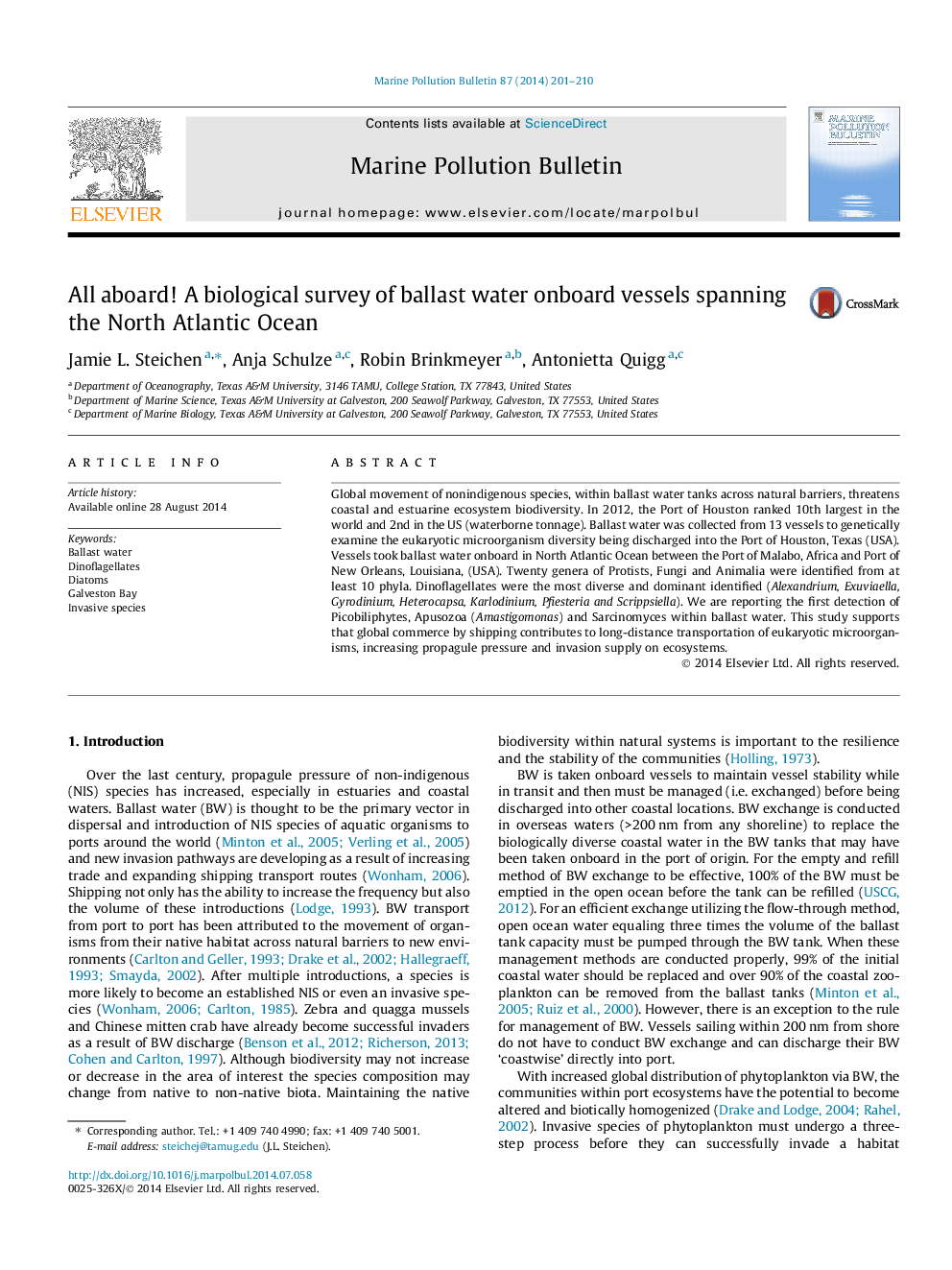| Article ID | Journal | Published Year | Pages | File Type |
|---|---|---|---|---|
| 6357648 | Marine Pollution Bulletin | 2014 | 10 Pages |
â¢With three deep water ports, Galveston Bay receives a high volume of vessel traffic.â¢First study of organisms in ballast water of vessels entering Galveston Bay, Texas.â¢Protista, Fungi and Animalia identified in ballast water of vessels entering the bay.â¢Dinoflagellates and diatoms present in majority of ballast water samples.â¢First report of Apusozoa, Picobiliphytes and Sarcinomyces in ballast water samples.
Global movement of nonindigenous species, within ballast water tanks across natural barriers, threatens coastal and estuarine ecosystem biodiversity. In 2012, the Port of Houston ranked 10th largest in the world and 2nd in the US (waterborne tonnage). Ballast water was collected from 13 vessels to genetically examine the eukaryotic microorganism diversity being discharged into the Port of Houston, Texas (USA). Vessels took ballast water onboard in North Atlantic Ocean between the Port of Malabo, Africa and Port of New Orleans, Louisiana, (USA). Twenty genera of Protists, Fungi and Animalia were identified from at least 10 phyla. Dinoflagellates were the most diverse and dominant identified (Alexandrium, Exuviaella, Gyrodinium, Heterocapsa, Karlodinium, Pfiesteria and Scrippsiella). We are reporting the first detection of Picobiliphytes, Apusozoa (Amastigomonas) and Sarcinomyces within ballast water. This study supports that global commerce by shipping contributes to long-distance transportation of eukaryotic microorganisms, increasing propagule pressure and invasion supply on ecosystems.
